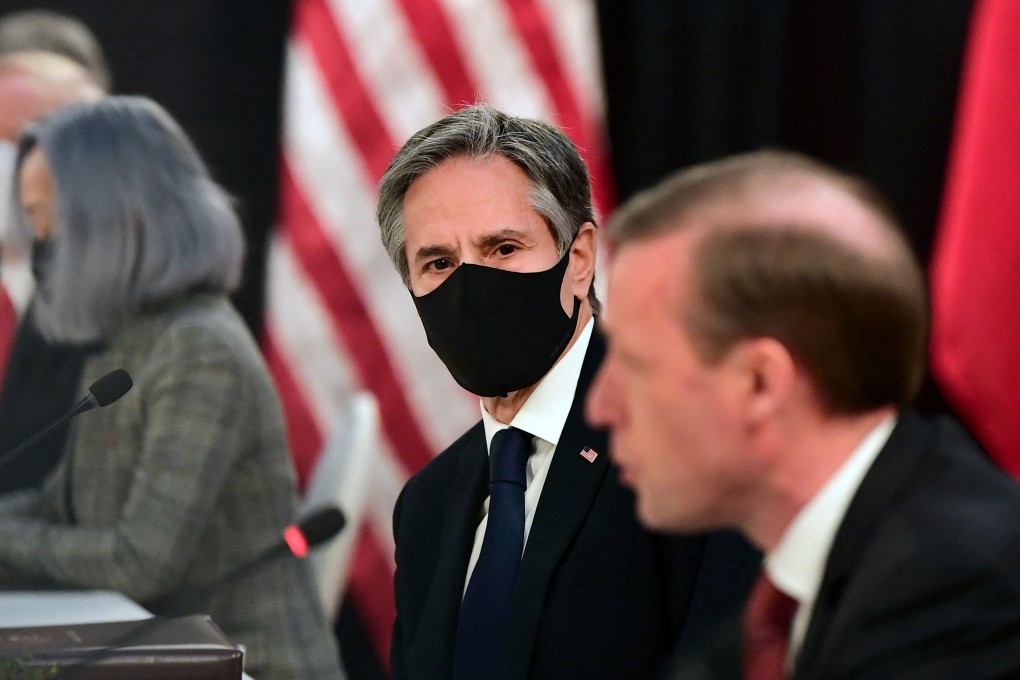Alaska summit: US and China trade barbs in tense start to talks – but Beijing still hopes for progress
- The meeting in Anchorage began with a series of testy public exchanges, but the mood reportedly improved once the two sides sat down behind closed doors
- The sniping between senior officials, including China’s foreign policy chief Yang Jiechi and US Secretary of State Antony Blinken had largely been expected

A fierce level of enmity and distrust was on full display at the first high-level talks between China and the United States since President Joe Biden took office, but Beijing still raised the prospect of achieving more of substance in future meetings.
The most noteworthy aspect of the first-day meetings was a public tit-for-tat between the two sides that lasted for over an hour as they traded accusations of “violating protocol”, although the mood was reported to have improved during later closed-door sessions.
Soon after the first day’s two rounds of talks had concluded, Chinese diplomats said the discussions had been “smooth” and they still had a lot to discuss the following day.
“The second round of talks was smooth, and we have discussed a lot of regional issues,” said Chinese Foreign Minister Wang Yi as he left the meeting room.
“[For the first round of talks,] we can’t say it was tense. Both sides have explained their stance”.
China’s Foreign Ministry spokesman Zhao Lijian sought to play down the combative posturing.